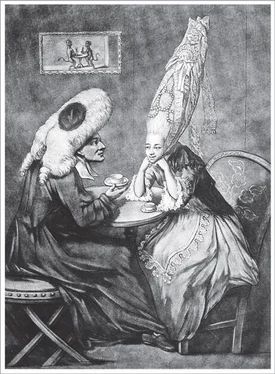Bill Bryson - At Home
Здесь есть возможность читать онлайн «Bill Bryson - At Home» весь текст электронной книги совершенно бесплатно (целиком полную версию без сокращений). В некоторых случаях можно слушать аудио, скачать через торрент в формате fb2 и присутствует краткое содержание. Жанр: Старинная литература, на английском языке. Описание произведения, (предисловие) а так же отзывы посетителей доступны на портале библиотеки ЛибКат.
- Название:At Home
- Автор:
- Жанр:
- Год:неизвестен
- ISBN:нет данных
- Рейтинг книги:4 / 5. Голосов: 1
-
Избранное:Добавить в избранное
- Отзывы:
-
Ваша оценка:
- 80
- 1
- 2
- 3
- 4
- 5
At Home: краткое содержание, описание и аннотация
Предлагаем к чтению аннотацию, описание, краткое содержание или предисловие (зависит от того, что написал сам автор книги «At Home»). Если вы не нашли необходимую информацию о книге — напишите в комментариях, мы постараемся отыскать её.
At Home — читать онлайн бесплатно полную книгу (весь текст) целиком
Ниже представлен текст книги, разбитый по страницам. Система сохранения места последней прочитанной страницы, позволяет с удобством читать онлайн бесплатно книгу «At Home», без необходимости каждый раз заново искать на чём Вы остановились. Поставьте закладку, и сможете в любой момент перейти на страницу, на которой закончили чтение.
Интервал:
Закладка:
At least they had steady work. For those dependent on casual labor, existence was an endless lottery. One-third of the inhabitants of Central London were estimated in 1750 to go to bed each night “almost Pennyless,” and the proportion only worsened as time went on. Casual laborers seldom knew when they woke in the morning whether they would earn enough that day to eat. So comprehensively dire were conditions for many that Henry Mayhew devoted a whole volume of his four-volume London Labour and the London Poor to the lowest of the low, scavengers, whose desperation led them to find value in almost anything that was dropped by the roadside. As he wrote:
Many a thing which in a country town is kicked by the penniless out of their path … will in London be snatched up as a prize; it is money’s worth. A crushed and torn bonnet, for instance, or, better still, an old hat, napless, shapeless, crownless, and brimless, will be picked up in the street, and carefully placed in a bag.
The conditions in which they lived were sometimes so squalid as to shock even the most hardened investigators. One housing inspector in the 1830s reported: “I found [one room] occupied by one man, two women, and two children, and in it was the dead body of a poor girl who had died in childbirth a few days before.” Poor parents habitually produced large broods, as a sort of pension policy, hoping that enough offspring would survive to support them in their dotage. By the second half of the nineteenth century, one-third of families in England had eight or more children, another third had five to seven, and the final third (the wealthier third overwhelmingly) had four or fewer. In poorer districts it was a rare household that could adequately feed everyone, so malnutrition at some level was more or less endemic. At least 15 percent of children, it is thought, had the bowed legs and pelvic distortions of rickets, and these unfortunates were overwhelmingly found among the poorest of the poor. One doctor in mid-Victorian London published a list of the things he had seen tiny infants fed—jellied calves’ feet, hard muffins soaked in oil, gristly meat they could not chew. Toddlers sometimes survived on what fell on the floor or what they could otherwise scavenge. By the time they were seven or eight, many children were sent out onto the streets to fend for themselves. By the 1860s, London had an estimated one hundred thousand “street Arabs” who had no education, no skills, no purpose, and no future. “Their very number makes one stand aghast,” one contemporary recorded.
Yet the idea of educating them was treated almost universally with abhorrence. The fear was that educating the poor would fill them with aspirations to which they were neither suited nor, frankly, entitled. Sir Charles Adderley, who was in charge of government education policy in the late 1850s, stated flatly: “It is clearly wrong to keep ordinary children of the working-class at school after the age at which their proper work begins.” To do so “would be as arbitrary and improper as it would be to keep the boys at Eton and Harrow at spade labour.”
No one better represented the harsh side of beliefs than the Reverend Thomas Robert Malthus (1766–1834), whose Essay on the Principle of Population as It Affects the Future Improvements of Society was published anonymously in 1798 and became immediately and resoundingly influential. Malthus blamed the poor for their own hardships and opposed the idea of relief for the masses on the grounds that it simply increased their tendency to idleness. “Even when they have an opportunity of saving,” he wrote, “they seldom exercise it for all that is beyond their present necessities goes, generally speaking, to the ale-house. The poor-laws of England may therefore be said to diminish both the power and the will to save among the common people, and thus to weaken one of the strongest incentives to sobriety and industry, and consequently to happiness.” He was particularly troubled by the Irish, and believed, as he wrote to a friend in 1817, that “a great part of the population should be swept from the soil.” This was not a man with a lot of Christian charity in his heart.
In consequence of the unrelentingly dire conditions, mortality figures soared wherever the poor congregated. In Dudley, in the Midlands, the average life expectancy at birth at midcentury had sunk to just 18.5 years, a life span not seen in Britain since the Bronze Age. In even the healthiest cities, the average life expectancy was 26 to 28, and nowhere in urban Britain did it exceed thirty.
As ever, those who suffered most were the youngest, yet their welfare and safety excited remarkably scant attention. There can be few more telling facts about life in nineteenth-century Britain than that the founding of the Society for the Prevention of Cruelty to Animals preceded by sixty years the founding of a similar organization for the protection of children. It is perhaps no less notable that the first named was made Royal Society for the Prevention of Cruelty to Animals in 1840, a little more than a decade and a half after its founding. The National Society for the Prevention of Cruelty to Children remains to this day regally unblessed.
II
Just when it must have seemed to the poor of England that life couldn’t get much worse, life got worse. The cause of the blow was the introduction and strict implementation of new poor relief laws starting in 1834. Poor relief had always been a sensitive issue in Britain. What particularly exercised many better-off Victorians was not the sad plight of the poor, but the cost. Poor laws had been around since Elizabethan times, but it was left to each parish to decide how to administer them. Some were reasonably generous, but others were so cheap that they were known to carry sick people or women in labor into another parish so that they became some other jurisdiction’s responsibility. Illegitimate births were a particular source of official irritation, and making sure that malfeasants were both suitably punished and made to shoulder the responsibility for what they had done was an almost obsessive preoccupation for local authorities. A typical decree from a court in Lancashire—this one in the late 1600s—reads:
Jane Sotworth of Wrightington, spinster, swears that Richard Garstange of Fazerkerley, husbandman, is the father of Alice, her bastard daughter. She is to have charge of the child for two years, provided she does not beg, and Richard is then to take charge until it is twelve years old. He shall give Jane a cow and 6 shillings in money. Both he and she shall this day be whipped in Ormeskirke.
By the early nineteenth century, the problem of poor relief had become a national crisis. The costs of the Napoleonic wars had severely strained the national exchequer, and matters only worsened with the coming of peace, as some three hundred thousand soldiers and sailors returned to civilian life and began looking for work in an already depressed economy.
The solution, almost everyone agreed, was to set up a national network of workhouses where rules would be enforced consistently to a single national standard. A commission, whose secretary was the indefatigable Edwin Chadwick, considered the matter with the thoroughness typical of the age (and of Chadwick) and at length produced a thirteen-volume report. One point of almost universal consensus was that the new workhouses should be made as disagreeable as possible, to keep them from becoming attractive to the poor. One of those providing testimony offered a cautionary tale so symptomatic of prevailing thought that it is worth giving here in full:
I remember the case of a family named Wintle, consisting of a man, his wife, and five children. About two years ago, the father, mother and two children, were very ill, and reduced to great distress, being obliged to sell all their little furniture for their subsistence; they were settled with us; and as we heard of their extreme distress, I went to them to offer relief; they, however, strenuously refused the aid. I reported this to the churchwarden, who determined to accompany me, and together we again pressed on the family the necessity of receiving relief; but still they refused, and we could not prevail upon them to accept our offer. We felt so much interested in the case, however, that we sent them 4 shillings in a parcel with a letter, desiring them to apply for more, if they continued ill; this they did, and from that time to this (now more than two years) I do not believe that they have been for three weeks off our books, although there has been little or no ill health in the family. Thus we effectually spoiled the habits acquired by their previous industry; and I have no hesitation in saying, that, in nine cases out of ten, such is the constant effect of having tasted of parish bounty.
Читать дальшеИнтервал:
Закладка:
Похожие книги на «At Home»
Представляем Вашему вниманию похожие книги на «At Home» списком для выбора. Мы отобрали схожую по названию и смыслу литературу в надежде предоставить читателям больше вариантов отыскать новые, интересные, ещё непрочитанные произведения.
Обсуждение, отзывы о книге «At Home» и просто собственные мнения читателей. Оставьте ваши комментарии, напишите, что Вы думаете о произведении, его смысле или главных героях. Укажите что конкретно понравилось, а что нет, и почему Вы так считаете.












